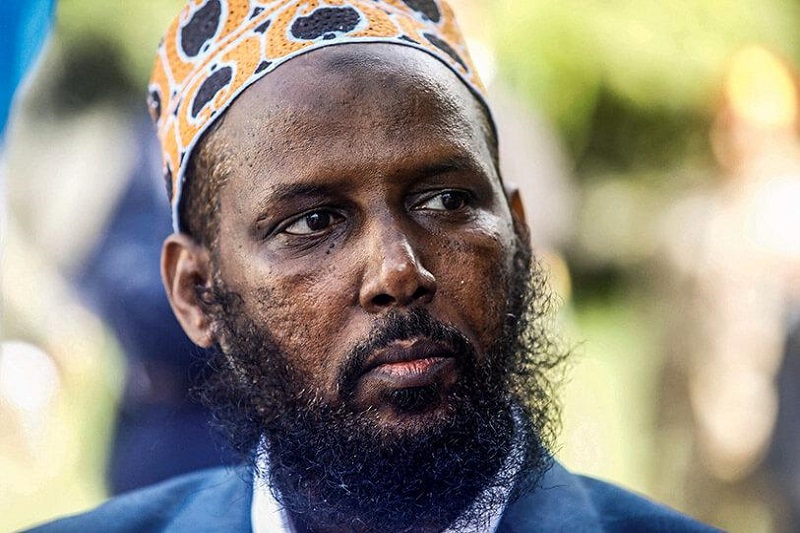According to statements made by Prime Minister Hamza Abdi Barre on Tuesday, Somalia has elevated the former deputy leader and spokesman for the Islamist group Al-Shabaab to the position of Minister of Religion. Muktar Robow has been placed under house arrest for the past four years as a result of a dispute with the former president, Mohamed Abdullahi Mohamed, who is more commonly referred to as Farmajo. The declaration represents a dramatic turnaround in Muktar Robow’s fortunes.
Robow, 53, went public with his defection from Al Qaeda-affiliated terrorists in August of 2017, despite the fact that the US government had previously offered a $5 million bounty for his capture. “After conversations that lasted more than thirty days, I’m very delighted to present Somali men and women who I have selected based on their academic background, experience, and fairness,” Barre said. “I’m really happy to present these individuals.” “I am hopeful that they will address the issues that the country is facing.”
Robow was taken into custody around the end of 2018, just a few days before he was supposed to run for regional office. The administration of Farmajo accused him of “organizing a militia” in Baidoa, which is the capital of the Bay area in the southwest of the country, and of attempting to “undermine stability.” His detention resulted in occasional demonstrations, some of which included the burning of photographs of Farmajo, whom the demonstrators accused of interfering in the affairs of the region.
Related Posts
His promotion comes just a few weeks after the newly elected President Hassan Sheikh Mohamud made a veiled reference to his government’s willingness to engage with Al-Shabaab, albeit with the caveat that they would only do so at the appropriate moment. For the past 15 years, Al-Shabaab has been leading a brutal insurgency against the weak central government of Somalia. Despite the fact that the African Union has launched an operation against the group, the organization is still a formidable opponent.
Although its fighters were expelled from Mogadishu, the capital of Somalia, in 2011, they continued to launch attacks against military, government, and civilian targets. Barre’s appointment on June 25 came with the expectation that he would name a cabinet within the next thirty days, but he explained the delay by saying it was due to the lengthy election process that the country had been going through, which culminated in May with Mohamud’s being selected as president.
The appointments that were made on Tuesday comprise a deputy prime minister, 25 ministers, 24 state ministers, and deputy ministers for a total team size of 75 members; the nominees are scheduled to be voted on by parliament. The newly elected administration is confronted with a myriad of issues, the most significant of which are the ongoing Islamist insurgency and the impending drought.
According to estimates provided by the United Nations, a debilitating drought over the Horn of Africa has caused approximately 7.1 million Somalis, which is nearly half of the population, to struggle with hunger, and more than 200,000 are on the verge of starvation. Mohamud stated in July that putting a stop to the deadly insurgency would require more than a military strategy.

